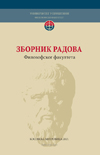Shakespeare’s History Plays: Glorification or Subversion of the Dominant Ideology?
Abstract
Due to prioritizing Machiavellian power-craving aspirations over the inner voice of conscience, the majority of Shakespeare’s rulers from the history plays suffers from the tragic ”dissociation of sensibility” (Eliot 1921: 64, 66). Since the process of giving priority to public obligations instead to private inclinations is easily detected in the contemporary political scene, especially in the form of the imposed choice between legalism and morality, valuable ideas of the 20th century humanist critics (Kantorowicz, Rubenstein, Bauman, Eliade, Hamvas) are problematized in the paper. Their contemporary insights have been combined with the humanist philosophical and ethic tradition in the works of Ovid, Ficino, Mirandola, Bruno, More. The Renaissance spokesperson of this humanist tradition was Shakespeare; through the chronological survey of his history plays, the paper aims at revealing the author’s criticism of the dominant Tudor ideology and neccessity for its subversion. Thus, the attitude presented by the representatives of the new historicist critical school, particularly Stephen Greenblatt, that the renaissance social institutions shaped, restricted and controlled an individual’s conduct, whereby every attempt at subverting the dominant system was doomed to failure, is strongly criticized. The importance of ”the historical sense” (Eliot 1963: 34), the concept relying on the permanent bond between the past and present, for the sake of creating a more humane future, has been recognized in Shakespeare’s history plays, apart from the already mentioned 20th century humanist thinkers, also by the presentist critics at the beginning of the 21st century, particularly Hughes Grady and Terence Hawkes (2007), who tirelessly claim, like Jan Kott before them (1990), that Shakespeare is our contemporary.
References
Bauman, Z. (1995). Life in Fragments: Essays on Postmodern Reality. Oxford, UK: Blackwell Publishers.
Bettelheim, B. (1989). Freud and Man’s Soul. London: Penguin Books.
Betelhajm B. i Frankl V. (2003). Ž. Trebješanin (Ur.). Ubijanje duše. Beograd: Zavod za udžbenike. Preveo D. Albahari.
Bogoeva Sedlar, Lj. (2003). O promeni: kulturološki eseji 1992–2003. Niš: Prosveta.
Bond, E. (2006). Freedom and Drama, Plays 8. London: Methuen.
Campbell, J. (1986). The Masks of God: Occidental Mythology. London: Penguin Books.
Eliade, M. (1989). History and the Myth of Eternal Return. London: Arkana, Penguin Books.
Eliot, T.S. (1921). Metaphysical Poetry. U Selected Essays. London: Faber and Faber.
Eliot, T.S. (1963). Izabrani tekstovi. Beograd: Prosveta.
Faulkner, W. (1949). Banquet Speech. Preuzeto sa http://www.nobelprize.org/nobel_prizes/literature/laureates/1949/faulkner-speech.html.
Frankl, V. (1986). The Doctor and the Soul. New York: Random House Inc.
Frankl, V. (1994). Zašto se niste ubili: traženje smisla življenja. Beograd: Žarko Albulj.
Freud, S. (1965). On Creativity and the Unconscious. New York: Harper and Row.
Grady, H., Hawkes, T. (2007). Presentist Shakespeares. London and New York: Routledge.
Greenblatt, S. (1980). Renaissance Self-Fashioning: From More to Shakespeare, Chicago: The University of Chicago Press.
Greenblatt, S. (1988). Invisible Bullets. U Shakespearean Negotiations. Berkeley, Los Angeles: University of California Press.
Hamvas, B. (1994). Patam. Beograd: Centar za geopoetiku.
Jung, C.G. (1964). Man and His Symbols. New York: Dell.
Kantorowicz, E. H. (1957). The King’s Two Bodies: A Study in Medieval Political Theology. Princeton: Princeton University Press.
Kot, J. (1990). Šekspir naš savremenik. Sarajevo: Svijetlost.
Levin, H. (1969). The Myth of the Golden Age in the Renaissance. New York: OUP.
Pinter, H. (2005). Art, Truth and Politics. Preuzeto sa http://www.nobelprize.org/nobel_prizes/literature/laureates/2005/pinter-lecture-e.html.
Rubenstein, R. (1975). The Cunning of History: The Holocaust and the American Future. New York: Harper & Row Publishers.
Suhodolski, B. (1972). Moderna filozofija čoveka. Beograd: Nolit.
Tillyard, E.M.V. (1964). Shakespeare’s History Plays. Harmondsworth: Penguin.
Trilling, L. (1967). Freud: Within and Beyond Culture. U Beyond Culture: Essays on Literature and Learning. London: Penguin Books.
Yates, F. A. (1964). Giordano Bruno and Hermetic Tradition, Chicago: The University of Chicago Press.
The details about the publication policy, including copyright and licensing, are available at:

